Food Security

How does climate change affect food security and nutrition ?
Climate change significantly impacts global food security and nutrition by causing extreme weather events, altering ecosystems, reducing water availability, affecting marine life, posing agricultural challenges, and diminishing nutrient intake. Mitigation strategies include sustainable agriculture practices, dietary diversification, and research and development to ensure future food security and nutrition.
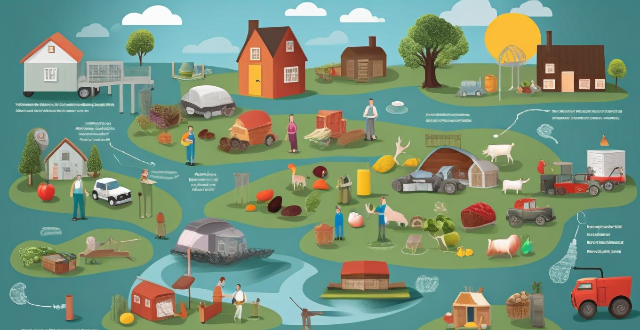
What impact do climate predictions have on agriculture and food security ?
Climate predictions significantly impact agriculture and food security by enabling informed decision-making among farmers. These decisions cover aspects such as crop planning, pest and disease management, water conservation, livestock care, and adaptation to market dynamics. By considering predicted weather patterns, temperature changes, and precipitation levels, farmers can optimize crop yields, reduce losses due to pests and diseases, conserve water resources, ensure proper nutrition for livestock, and adapt to changing market conditions. This results in sustainable agricultural practices that contribute to global food security.
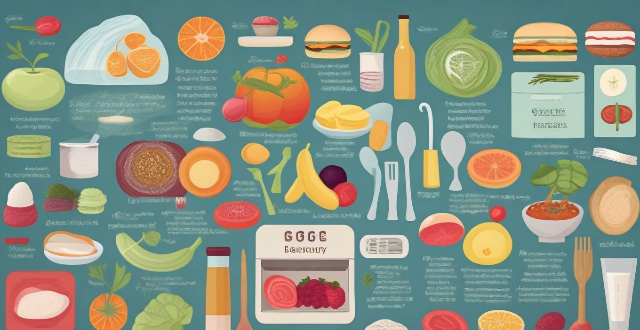
What is the relationship between climate loss and damage and food security ?
The article discusses the complex relationship between climate loss and damage and food security, highlighting how extreme weather events and slower changes in climate can impact food production. It details the consequences of these impacts for food security, such as reduced crop yields, increased prices, loss of livelihoods, nutritional impacts, and displacement. The article also suggests mitigation and adaptation strategies to address this issue, including reducing greenhouse gas emissions, sustainable agriculture practices, crop diversification, improved irrigation systems, early warning systems, and research and development. The conclusion emphasizes the need for collective action to ensure food security in the face of climate change.

How can climate models be used to improve agricultural practices and food security ?
Climate models play a critical role in enhancing agricultural practices and ensuring food security by forecasting weather conditions, mitigating climate change effects, enhancing crop yield potential, and aiding in policy making. Applications include adapting to climate variability through crop diversification and improved plant breeding, strengthening resilience through water management and soil health maintenance. The use of these models is crucial for adapting to changing environmental conditions and ensuring global food security.
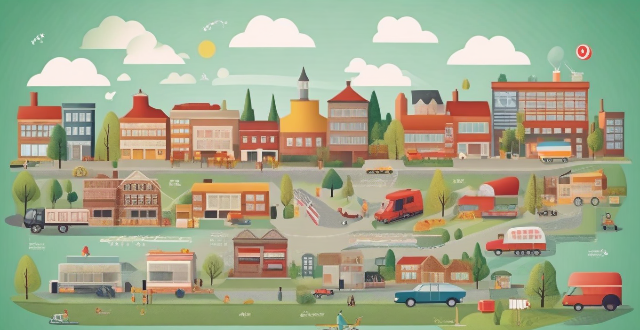
How can urban planning and design contribute to enhancing urban food security under changing climatic conditions ?
The text discusses the importance of urban planning and design in enhancing food security in cities, especially under changing climatic conditions. It outlines key strategies such as promoting urban agriculture, sustainable land use planning, improving access to healthy food options, supporting local food production and consumption, and fostering innovation and collaboration. These strategies aim to create resilient and self-sufficient urban environments that can adapt to climate change while ensuring food security for all residents.
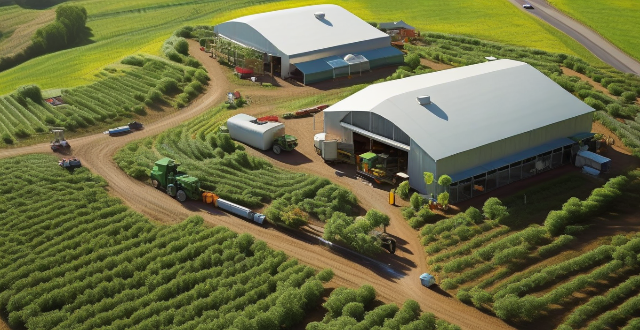
What role do sustainable farming practices play in maintaining food security amidst changing climate conditions ?
Sustainable farming practices are crucial for maintaining food security amidst changing climate conditions. They help farmers adapt to these changes by enhancing soil health, improving water management, promoting crop diversification, and integrating livestock and crop production. These practices also mitigate the impacts of climate change on agriculture by reducing greenhouse gas emissions, promoting biodiversity, and encouraging renewable energy use. Supporting smallholder farmers through training, access to markets, and cooperatives is essential for implementing sustainable practices at a larger scale. Overall, sustainable farming practices are vital for building resilient agricultural systems that can withstand climate change while ensuring food security for future generations.
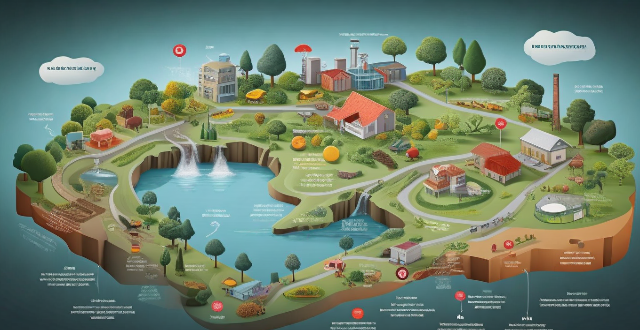
How does climate change affect agriculture and food security ?
Climate change significantly affects agriculture and food security by increasing extreme weather events, altering crop yields and quality, impacting livestock, and raising concerns about food access, affordability, and biodiversity loss. Adaptation and mitigation strategies such as sustainable farming practices, water management, genetic research, and policy initiatives are essential to build a resilient food system.
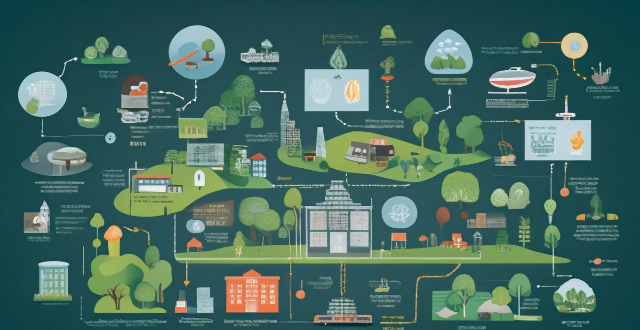
Can technology help improve food security in a changing climate ?
In the face of climate change, technology offers numerous solutions to enhance food production and distribution, contributing to global food security. Key areas where technology can make a significant impact include precision farming, genetic engineering, data analytics, water management, digital infrastructure, supply chain optimization, urban agriculture, and policy support. By leveraging these technological advancements, we can mitigate the adverse effects of climate change on agriculture and ensure a stable and sustainable food system for all.
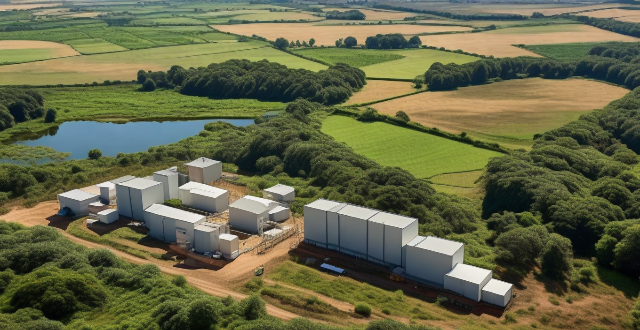
How does climate variability impact agriculture and food security ?
Climate variability significantly impacts agriculture and food security by affecting crop yields, livestock production, and the availability and accessibility of food. Direct impacts include changes in temperature, precipitation, extreme weather events, and CO₂ levels, while indirect impacts involve pest and disease outbreaks, water resource availability, soil quality, ecosystem services, market prices and trade, food accessibility and nutrition, and farmer livelihoods. Mitigation and adaptation strategies such as crop diversification, improved water management, breeding resilient crops, sustainable soil management, early warning systems, insurance and safety nets, policy support, and international cooperation are essential for building a climate-resilient food system.
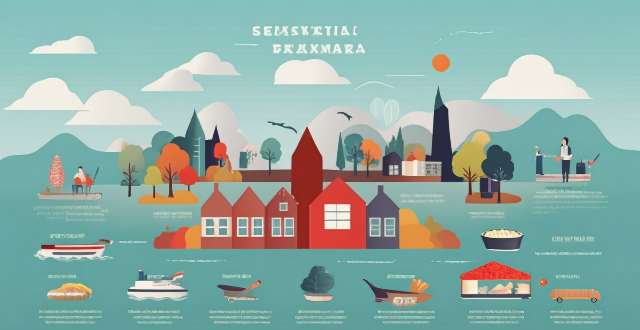
What is the relationship between climate change, food security, and national stability ?
The essay discusses the relationship between climate change, food security, and national stability. Climate change is causing extreme weather events that reduce crop yields and threaten biodiversity, leading to water scarcity. Food insecurity can result from these impacts, causing economic downturns, social unrest, migration, and political instability. Stable nations are better equipped to address these challenges through resource allocation, research, international cooperation, and emergency response.

How has global warming affected agricultural practices and food security ?
Global warming has significantly influenced agricultural practices and food security worldwide, affecting areas such as altered climate conditions, pest and disease management, crop variety and production, and food security concerns. These changes include irregular rainfall patterns leading to droughts and floods, water scarcity, extreme temperature fluctuations causing heat waves and cold spells, increased pest infestations and new pest species introduction, elevated disease risks, changes in crop yields and shifting production regions, altered planting seasons, price volatility, supply disruptions, nutrient depletion, and loss of biodiversity. Farmers must adapt to these new realities to ensure sustainable food systems for the future.
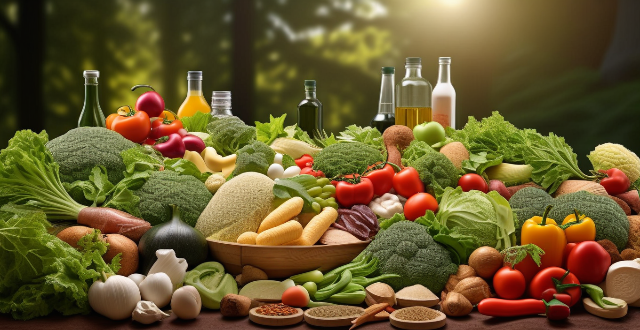
Can second-generation biofuels overcome the food vs. fuel debate and contribute to energy security ?
The article discusses the potential of second-generation biofuels to address the food vs. fuel debate and contribute to energy security. It explains that these biofuels are produced from non-food sources such as agricultural waste, wood chips, and other organic materials, which do not compete with food production. The article highlights how second-generation biofuels can diversify energy sources, reduce emissions, and create jobs in rural areas. However, it also notes that further technology development, infrastructure development, and public perception challenges need to be addressed to fully realize their potential.

What are the gender-specific impacts of climate change on agriculture and food security ?
Climate change has gender-specific impacts on agriculture and food security. Women often bear the brunt of these impacts due to their roles in household food production and preparation, income generation through small-scale farming, and community leadership in natural resource management. Men, on the other hand, may experience changes in employment patterns, loss of income, increased stress, and social conflicts over resources. Both women and men face challenges such as reduced crop yields, increased workload, loss of traditional knowledge, health risks, and reduced dietary diversity. Addressing these gender-specific impacts requires a comprehensive approach that promotes gender equality and empowers both women and men to adapt to climate change.
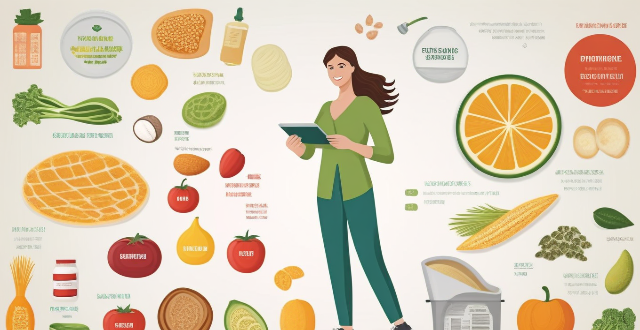
How does climate change affect food security ?
Climate change poses a threat to food security by affecting various aspects of the food system, including production, distribution, and consumption. Extreme weather events such as floods, droughts, and heatwaves can have a devastating effect on crop yields, while changes in rainfall patterns and temperature can also affect crop yields. Climate change can also affect the transportation of food products and the nutrient content of food products, leading to higher prices and reduced nutritional value. To mitigate the effects of climate change on food security, sustainable agriculture practices, investment in research and development, and government policies can all play a crucial role in ensuring that people have access to affordable and nutritious food.
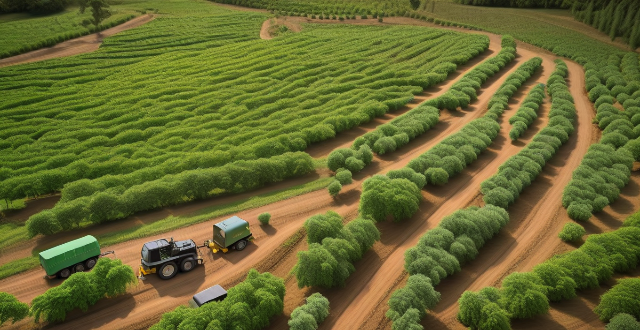
How do different regions around the world cope with climate change-related threats to their food sources ?
Coping with Climate Change: Global Strategies for Food Security explores how various regions are adapting agricultural practices to ensure food security amidst climate change. Asia is focusing on modernizing irrigation systems and researching drought-resistant crops. Africa is promoting small-scale farming techniques and agroforestry. Europe is utilizing precision farming and developing climate-smart crops. North America is practicing rotational grazing and using genetic engineering for more resilient crops. South America is embracing agroecology and community-based adaptation. Australia and Oceania are managing soil salinity issues and heat tolerance research. Policy initiatives include improving access to finance for smallholder farmers and establishing regulatory frameworks. Community-level actions involve farmer training programs and local innovations like community gardens. Technology adoption includes mobile apps for weather information and remote sensing for crop monitoring. The conclusion emphasizes the importance of combining traditional knowledge with modern technology to address climate change and ensure global food security.

What is the connection between biodiversity and food security ?
The connection between biodiversity and food security is crucial, as biodiversity contributes to crop pollination, natural pest control, soil health, and genetic resources for crop improvement. Loss of biodiversity can lead to reduced crop yields, increased use of pesticides, loss of genetic diversity, and economic impacts on farmers. Sustainable agriculture practices such as agroforestry, conservation agriculture, integrated pest management, and crop rotation/intercropping can help maintain biodiversity while ensuring food security.

What are some examples of how climate change has affected international security ?
Climate change has significant implications for international security, including resource scarcity and competition, displacement and migration, state fragility and failed states, environmental refugees, and national security threats. These challenges require global cooperation and strategic planning to mitigate their effects on international stability.
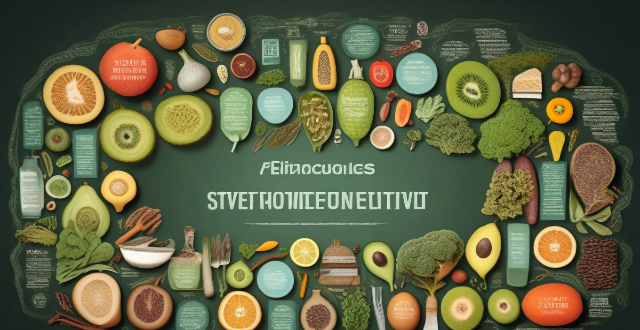
What is the link between climate change, food security, and biodiversity ?
This article discusses the interconnectedness of climate change, food security, and biodiversity, emphasizing their impacts on each other and the need for collective action to address these issues. It defines each topic and outlines how they affect one another, highlighting the importance of sustainable practices in agriculture, conservation efforts, and reductions in greenhouse gas emissions as essential components of a comprehensive strategy to protect our planet's future.

How can countries prepare for the security challenges brought about by climate change ?
Climate change poses security challenges such as natural disasters and conflicts over resources. Countries can prepare by strengthening infrastructure, adapting agriculture, managing water, enhancing energy security, mitigating climate change impacts, and strengthening governance and cooperation.
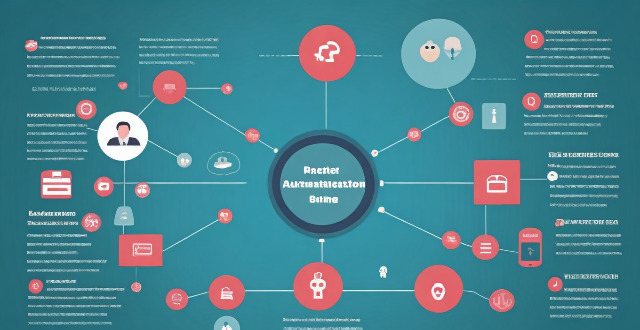
How does two-factor authentication enhance security ?
Two-factor authentication (2FA) is a security process that requires two different factors to verify the user's identity, enhancing security by reducing the risk of unauthorized access, providing alerts for suspicious activities, protecting against various types of attacks, increasing user confidence in online services, and helping maintain compliance with security standards. Its implementation should be carefully planned considering both security requirements and user convenience.
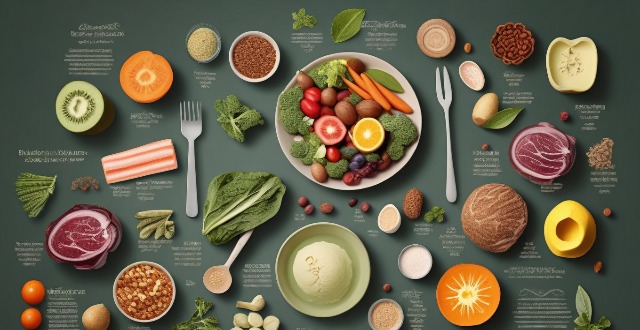
How does climate change influence nutrition and dietary health through changes in food production ?
Climate change affects nutrition and dietary health by altering food production, impacting crop yields, nutrient content, pest and disease pressure, and the availability and accessibility of food. Sustainable agricultural practices and adaptation are crucial for mitigating these effects and ensuring global food security.
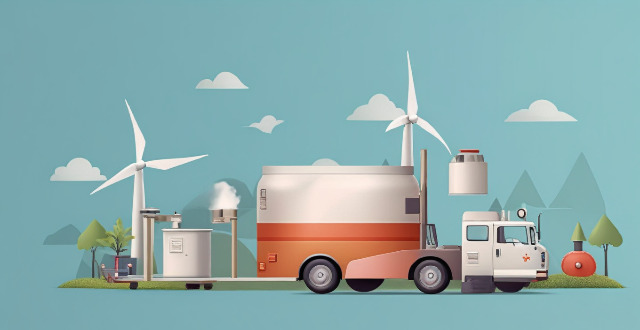
Can renewable energy sources contribute to national security in the context of climate change ?
Renewable energy sources can contribute to national security by reducing dependence on fossil fuels, mitigating the impacts of climate change, and promoting economic stability.

What policies are being implemented to mitigate the effects of climate change on national security ?
Climate change poses a significant threat to national security, affecting areas such as food and water scarcity, natural disasters, and displacement of people. Governments around the world are implementing various policies to mitigate these effects and ensure the safety and stability of their nations. Key policies include transitioning to clean energy sources, promoting sustainable agriculture practices, protecting coastal communities and infrastructure, collaborating globally to address climate change, and building resilience to natural disasters through disaster risk reduction and preparedness. By implementing these policies, governments aim to not only reduce the direct effects of climate change but also strengthen their overall capacity to handle related challenges, ensuring the continued security and stability of their nations.

What are the security concerns related to Smart Grid Technology ?
Smart grid technology, which uses digital communication technologies to monitor and control the flow of electricity, offers benefits such as increased efficiency and reliability. However, there are security concerns that need to be addressed, including cyber attacks, data breaches, insider threats, physical security risks, and interdependencies with other critical infrastructures. It is essential to implement strong cybersecurity measures, strict access controls, and robust physical security protocols to protect the system's integrity and confidentiality.
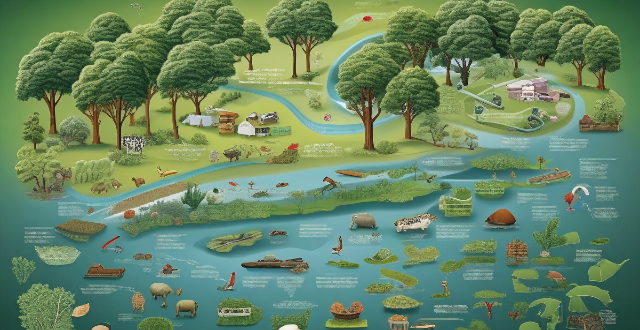
How do rising temperatures and altered precipitation patterns influence crop yields and food availability ?
This article explores the impact of global climate change on agriculture, specifically focusing on rising temperatures and altered precipitation patterns. It highlights how these changes can affect crop yields through increased evapotranspiration, altered growth cycles, pest and disease pressure, and changes in pollination. Additionally, it discusses how rising temperatures can impact food availability by altering the distribution of crops, increasing post-harvest losses, and causing market price fluctuations. The article also examines the effects of altered precipitation patterns on crop yields and food availability, including water stress, nutrient leaching, flooding, soil erosion, and irrigation needs. Finally, it emphasizes the importance of understanding these impacts and developing strategies to mitigate their effects on crop yields and food availability to ensure food security for future generations amidst a changing climate.

What are the security concerns related to IoT ?
The article discusses the major security concerns related to the Internet of Things (IoT), such as data privacy and confidentiality, device security, network security, physical security, and software vulnerabilities. It emphasizes the need for implementing appropriate security measures to ensure the secure deployment of IoT devices and protect sensitive information from unauthorized access.
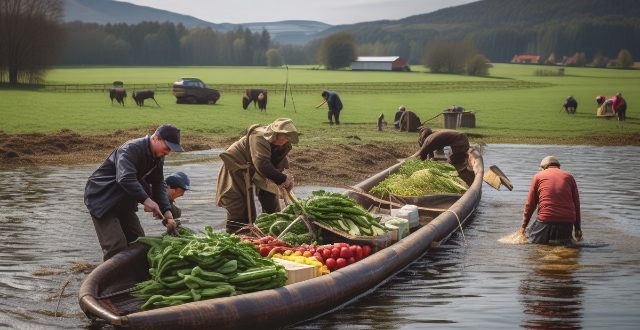
How can we ensure food security in the face of extreme weather events caused by climate change ?
The article discusses strategies for ensuring food security in the face of extreme weather events caused by climate change, including diversifying crop production, improving water management, using climate-resilient crop varieties, adopting sustainable agricultural practices, strengthening early warning systems and disaster risk reduction, supporting smallholder farmers, and promoting policy coherence and international cooperation.
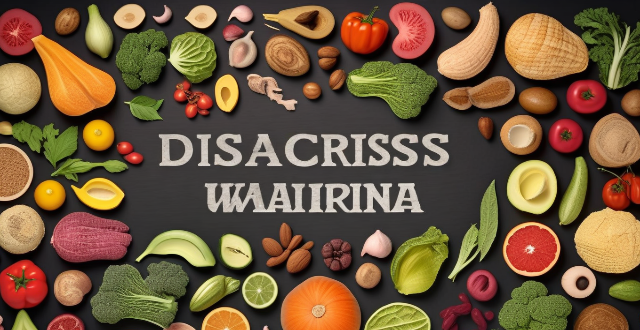
What are the impacts of global warming on agricultural production and food supply ?
This article discusses the impacts of global warming on agricultural production and food supply, including changes in climate patterns, reduced crop yields, loss of biodiversity, decreased nutrient content, heat stress in livestock, changes in feed availability, increased risk of disease, reduced food availability, increased food prices, and food safety concerns.

How do firewalls contribute to network security ?
Firewalls are crucial for network security, offeringFirewalls are crucial for network security, offering, blocking unwanted connections, preventing preventing network intrusion, enforcing security policies, providing VPN support, integrating with other security systems, protecting against known threats, offering customizable features, ensuring scalability and performance, and reducing the risk of data breach.
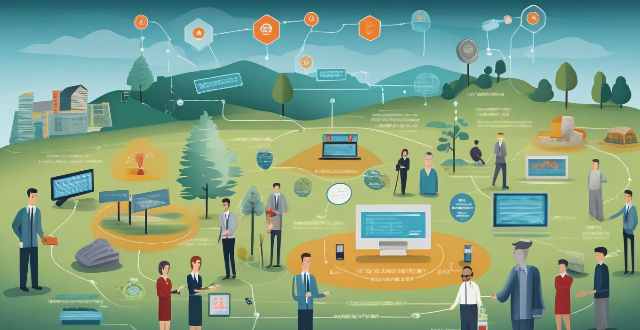
Can blockchain technology improve data security and privacy ?
Blockchain technology has been touted as a revolutionary tool that can improve data security and privacy. Its decentralized nature, encryption, and transparency make it difficult for attackers to compromise the network. Additionally, its anonymity, control over personal data, and smart contracts enhance privacy by giving individuals more control over their information.